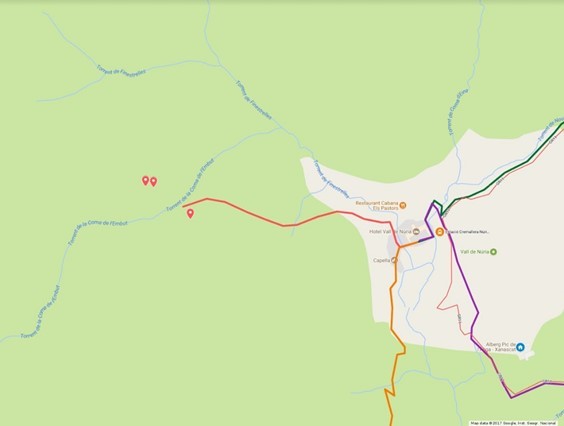
Integrated analysis on transhumance activities in the Eastern Pyrenees: enhancing mountain Cultural Landscapes
Integrated analysis on transhumance activities in the Eastern Pyrenees: enhancing mountain Cultural Landscapes
Research team:
Josep Maria Palet Martínez (PI) (Research Director ICAC). jpalet@iccat.cat
Carlos Tornero Dacasa (Co-PI) (Postdoctoral researcher IPHES). ctornero@iphes.cat
Florent Rivals (Research Professor ICREA-IPHES). frivals@iphes.cat
Joan Bosch i Ballbona (Research Director ICRPC). joan.boschb@udg.edu
Lídia Colominas Barberà (Postdoctoral researcher ICAC). lcolominas@icac.cat
Pau Olmos Benlloch (Postdoctoral researcher ICAC). polmos@icac.cat
Antoni Rojas Rabaneda (Project Manager ICRPC). arojas@icrpc.cat
Tania Polonio Alamino (PhD Student ICAC). tpolonio@icac.cat
Abel Gallego Valle (PhD Student ICAC). agallego@icac.cat
Aitor Burguet Coca (PhD Student IPHES). aburguet@iphes.cat
Co-investigators from external centres:
Santiago Riera Mora (SERP. Universitat de Barcelona). rieram@ub.edu
Ana Ejarque Montolio (CNRS-GEOLAB (UMR 6042/CNRS, MSH, Université Blaise Pascal, France). Ana.EJARQUE@univ-bpclermont.fr
Carles Rosell Rufat (IRTA). carles.rosell@irta.cat
Braddock K. Linsley (CU). blinsley@ldeo.columbia.edu
Mónica Aguilera (UdL). monica.aguilera@udl.cat
Juan Pedro Ferrio (UdL). pitter.ferrio@pvcf.udl.cat
Abstract of the proposal
High-mountain areas have been considered marginal and risky environments, constrained by severe climatic conditions and their extreme topography. However, several international research projects have shown that their potential for historical knowledge linked with pastoral activities is enormous. This information is of crucial importance, as this activity has fulfilled first-order roles (social, economic, environmental and spatial planning), leaving a strong cultural stamp on the population and on the territory. There are, however, few data available to both characterize and evaluate this activity.
With this pilot project we propose an innovative approach to study this topic. New analytical procedures will we applied to study in more detail mobile pastoral activities and their relationship with mountain occupations. The methodology combines fieldwork (ICAC-IPHES), non-invasive landscape and heritage analysis (ICAC-ICRPC), environmental proxies (ICAC), zooarchaeological analyses (ICAC), biomolecular and microwear analyses on faunal remains (IPHES) and experimental animal studies (IPHES). Each PI will be in charge and coordinate a specific complementary skill, working together in the study-case sector.
A Postdoc researcher will be hired for the management of fieldwork and to coordinate the zooarchaeological analyses. Forecast impact of project’s results will have high potential synergies and benefits to broader scientific efforts in the common SUMA R3 Europe 2020 strategy. It will promote collaborative research and enable investigators to seek external funding to pursue larger scale H2020 projects in a research area of potential strategic relevance to R3 (IP Tornero ERC-StG-2018). The Postdoc researcher will be also in charge of this aim, exploring opportunities between European research groups working on these topics.


